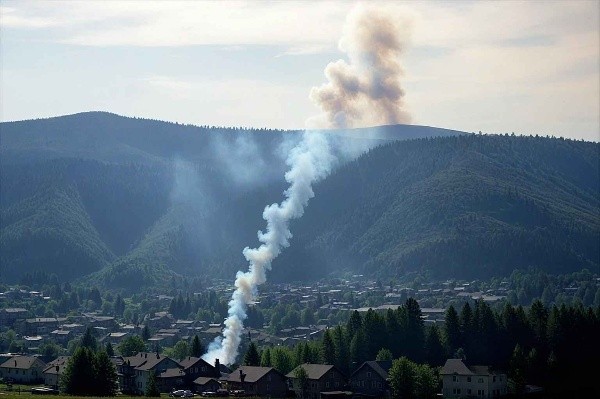Iran’s Plan to Strike Back Against the U.S.
Iran’s Military Preparations Following U.S. Attacks
Loading...

Lebanese group says it targeted Israeli airbase east of Haifa with dozens of rockets after series of Israeli attacks.
Escalation of Conflict Following Israeli Strikes
In a significant escalation of hostilities, Hezbollah has claimed responsibility for launching dozens of rockets at Israel’s Ramat David Airbase, located east of Haifa. This attack is reportedly in retaliation for a series of Israeli airstrikes that resulted in civilian casualties in Lebanon. The incident marks a notable intensification in the ongoing cross-border clashes that have persisted since October of last year.
Details of the Attack
The rocket assault occurred in the early hours of Sunday, prompting sirens to sound across northern Israel. If confirmed, this would be Hezbollah's most extensive strike into Israeli territory since the onset of the current conflict. The Israeli military reported that approximately ten rockets were fired from Lebanon, with most being intercepted before reaching their targets.
In response to the escalating violence, the Israeli army conducted hundreds of airstrikes across southern Lebanon on Saturday, aiming to thwart potential Hezbollah attacks. Additionally, the Israeli military has imposed restrictions on large gatherings in northern cities, including Haifa, to ensure public safety.
Significance of the Attack
Al Jazeera’s correspondent in Beirut, Ali Hashem, emphasized the historical significance of this attack, noting that it represents the first time since the 2006 war between Israel and Hezbollah that missiles have been launched beyond a 20-kilometer range. Reports indicate that the rockets impacted areas as far as 45 to 50 kilometers from the Lebanese border, including above the Ramat David Airbase.
Hezbollah stated that it utilized its Fadi 1 and Fadi 2 rockets for this operation, moving away from the older Soviet-made Katyusha rockets that have characterized its previous assaults. This shift in weaponry suggests an evolution in Hezbollah's military capabilities.
Context of Recent Violence
The rocket fire follows a week of intense Israeli military operations in Lebanon, which included airstrikes that resulted in significant casualties. On Tuesday and Wednesday, a series of explosions linked to Hezbollah's communication devices injured thousands and claimed the lives of dozens, including civilians. Lebanon has attributed these unprecedented attacks to Israeli forces.
Moreover, an Israeli airstrike in the southern suburbs of Beirut on Friday killed at least 38 individuals, including senior Hezbollah commander Ibrahim Aqil, further escalating tensions. The attack destroyed an entire residential building, highlighting the severe impact of the ongoing conflict on civilian life.
Ongoing Clashes and Humanitarian Impact
Since the outbreak of the war in Gaza, Hezbollah and Israeli forces have engaged in daily skirmishes. Hezbollah has vowed to continue its attacks on Israeli military installations until Israel ceases its offensive in Gaza. The violence has led to the displacement of tens of thousands of people on both sides of the border, exacerbating an already dire humanitarian situation.
Both parties appear to be caught in a cycle of escalation, with Hezbollah asserting that it does not seek an all-out war but is prepared for one if necessary. Israeli leaders have responded with promises to push Hezbollah away from the border and ensure the safety of communities in northern Israel, even if it requires military action.
As the situation develops, the potential for a broader conflict looms, raising concerns about the stability of the region and the safety of civilians caught in the crossfire.
Editor
Iran’s Military Preparations Following U.S. Attacks
Troops remain in five strategic locations, raising fears of renewed tensions and long-term occupation.
Opposition forces have taken control of the capital after a significant offensive. Here is how it unravelled.
